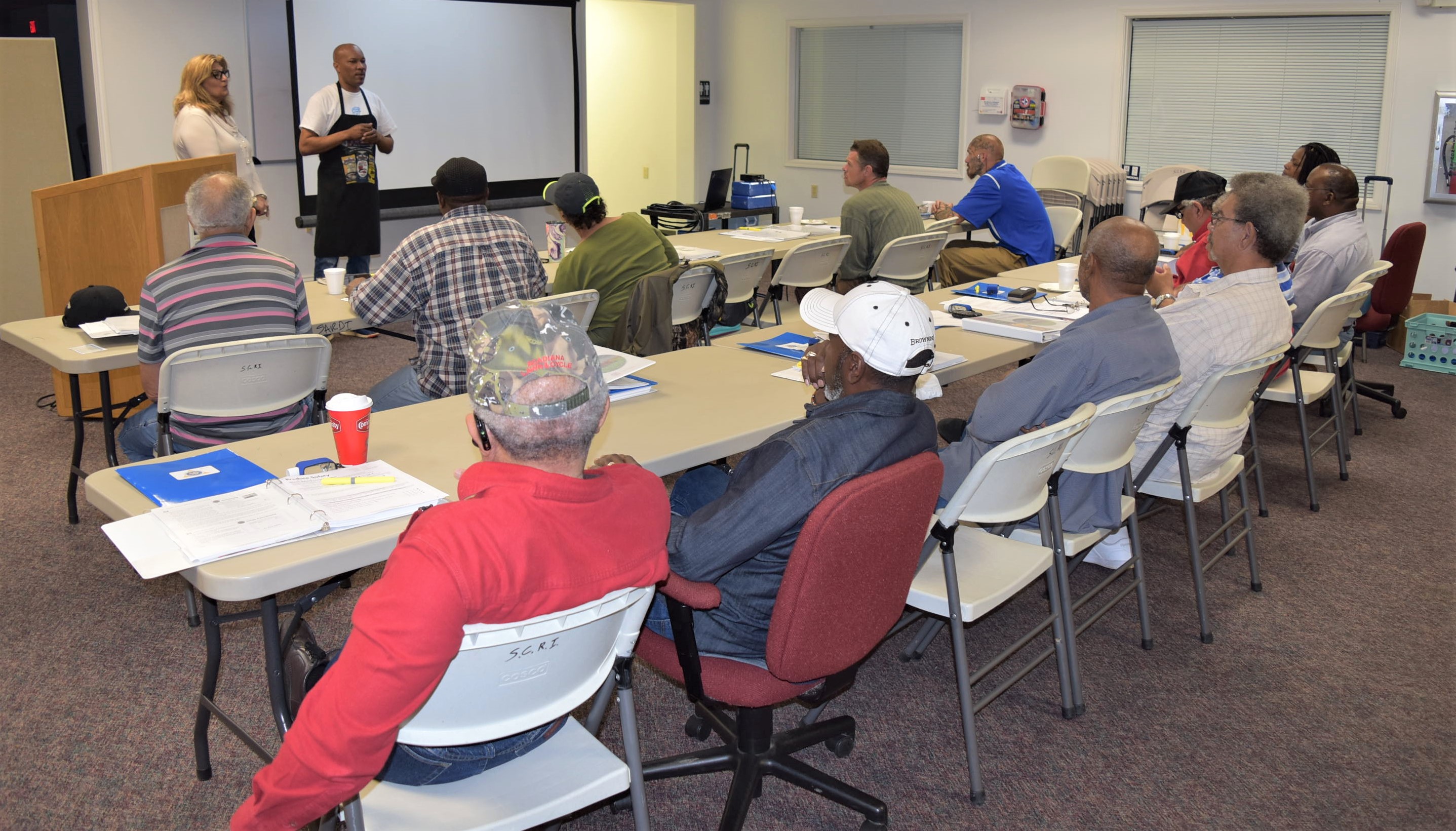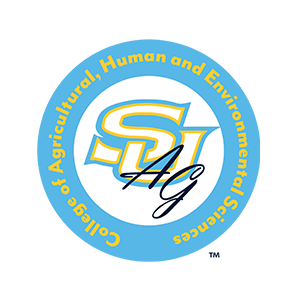FSMA - Produce Safety Rule
The Southern University Agricultural Land Grant Campus (SUALGC) mission is to "Link Citizens of Louisiana with Opportunities for Success”. SUALGC’s research is focused to transform lives through innovative research and education. Our research unit has achieved great success over the past decades.

We have expanded the breadth and depth of our research portfolio and strengthened our strategic partnerships to improve the conditions of citizens and communities. Southern University Agricultural Land-Grant Campus adapts to a rapidly changing society and improves lives through an educational process that uses research-based information to reach citizens of Louisiana. The SUALGC Has been offering educational programs and resources on agriculture and natural resources, economic and community development, food safety, Good Agricultural Practices (GAP), youth development, family and human development, diet, nutrition and health education in thirty-four parishes in Louisiana. The Food Safety Modernization Act (FSMA) of 2011 required the United States Food and Drug Administration (FDA) to establish and publish a science-based, preventive rule to provide minimum standards for the safe production and harvesting of produce by domestic and foreign farms. Southern University Lang-Grant campus is committed to follow the rules to make sure that the produce safety rules are implemented to ensure safe food for citizens of Louisiana. The overall goal of this project is to establish or enhance Louisiana’s Produce Safety Programs to encourage the safe production of fresh fruits and vegetables and to promote compliance with the requirements of FDA’s Regulation referred to as the Produce Safety Rule. The successful implementation of produce safety rule will result in increased proper safety procedures of on-farm food safety practices in the state of Louisiana.
Food Safety Modernization Act (FSMA)
Produce Safety Rule
- The Food Safety Modernization Act (FSMA), signed into law by President Obama in 2011, affects farms and certain other businesses in the food chain.
- Produce Safety Rule applies to farmers who grow and sell vegetables and fruits.
- The purpose of the law is to make our food safer by preventing problems that result in foodborne illness, rather than dealing with problems after they happen.
- The Food and Drug Administration (FDA) developed regulations that put the law into effect.
- The Louisiana Department of Agriculture and Forestry, Southern University Land Grant Campus and LSU AgCenter are working together on produce safety in Louisiana.
- The Produce Safety Rule establishes minimum standards for the safe growing, harvesting, packing and holding of fruits and vegetables.
The Produce Safety Rule covers several areas:
- Water Quality
- Biological soil amendments (manure, compost, etc.)
- Domesticated and wild animals
- Worker training, health and hygiene
- Equipment, tools and buildings
- Produce Safety Grower Training Workshop
Produce Safety Grower Training Workshop
Exemptions (the Produce Safety Rule does not apply):
- Produce that is used for personal or on-farm consumption.
- Farms that sell an annual value of $25,000 or less of produce, averaged over the previous three-year period.
- Produce that is not eaten raw.
- Crops that are identified as rarely consumed raw. *See below.
- Food grains and oilseeds. ** See below
Qualified Exemption:
There is a qualified exemption for farms that meet two requirements:
- The farm must have food sales averaging less than $500,000 per year during the previous three years.
- The farm must sell more of its products to qualified end users than to all other buyers combined during the previous three years. A qualified end user is either the consumer of the food or a restaurant or retail food establishment that is located in the same state or not more than 275 miles away.
A farm with a qualified exemption must meet certain requirements and keep documentation.
Proper hand hygiene
Crops that are not covered under the Produce Safety Rule
* These produce commodities are identified by the FDA as rarely consumed raw and are exempt from the Produce Safety regulations: asparagus; black beans, great Northern beans, kidney beans, lima beans, navy beans, and pinto beans; garden beets (roots and tops) and sugar beets; cashews; sour cherries; chickpeas; cocoa beans; coffee beans; collards; sweet corn; cranberries; dates; dill (seeds and weed); eggplants; figs; horseradish; hazelnuts; lentils; okra; peanuts; pecans; peppermint; potatoes; pumpkins; winter squash; sweet potatoes; and water chestnuts.
** Food grains and oilseeds are not under the Produce Safety regulations. The Produce Safety Rule does not apply to food grains, including barley, dent or flint corn,sorghum, oats, rice, rye, wheat, amaranth, quinoa, buckwheat. The rule also does not apply to oilseeds, including cottonseed, flax seed, rapeseed, soybean, and sunflower seed.
For more information contact:
Dr. Fatemeh Malekian
Project Director
Southern University Agricultural Land-Grant Campus
Phone:225-771-0251
fatemeh_malekian@suagcenter.com
or
Chelsea Triche
Produce Safety & Good Agricultural Practices Programs Coordinator and Food Safety Program Manager
Phone:225-771-2367
Chelsea_triche@suagcenter.com
Quick Links
FDA / FSMA/Produce Safety
LA Department of Agriculture
PSA/ Cornell University
ServSafe

